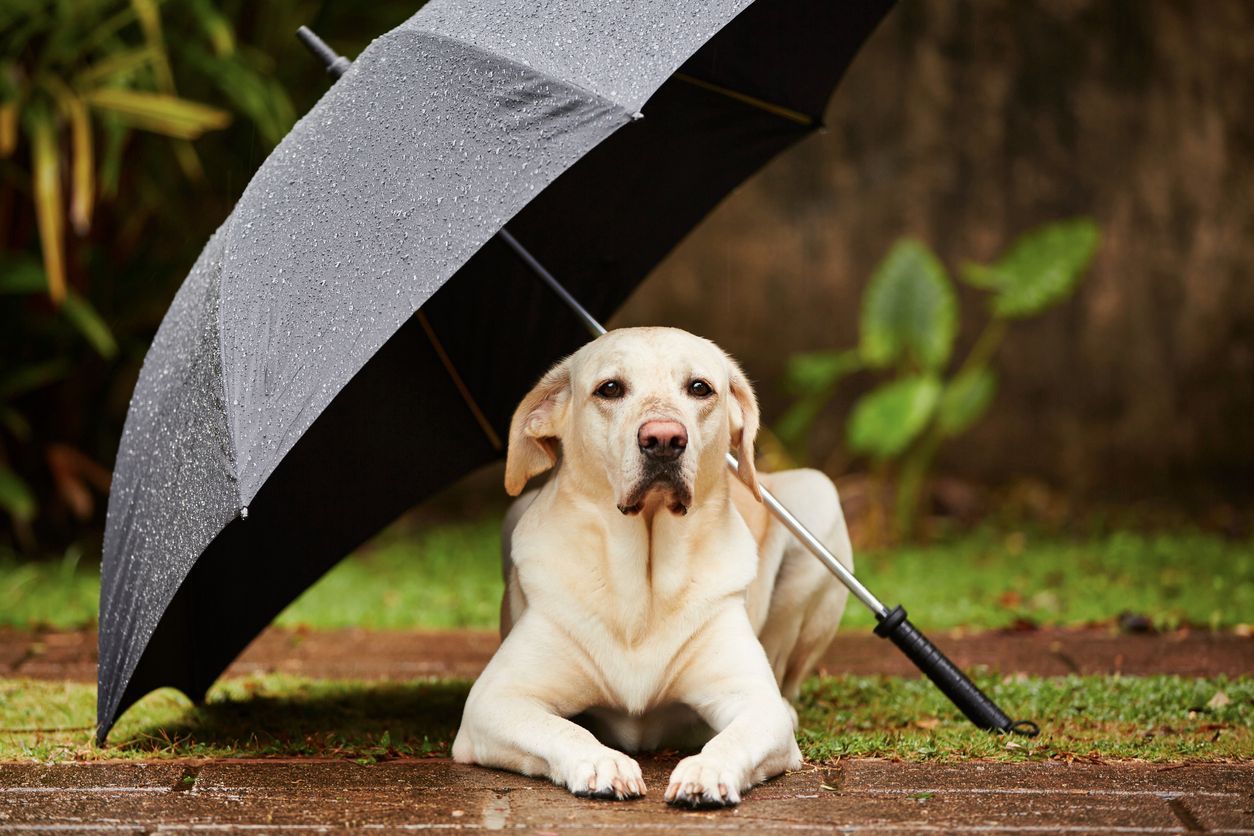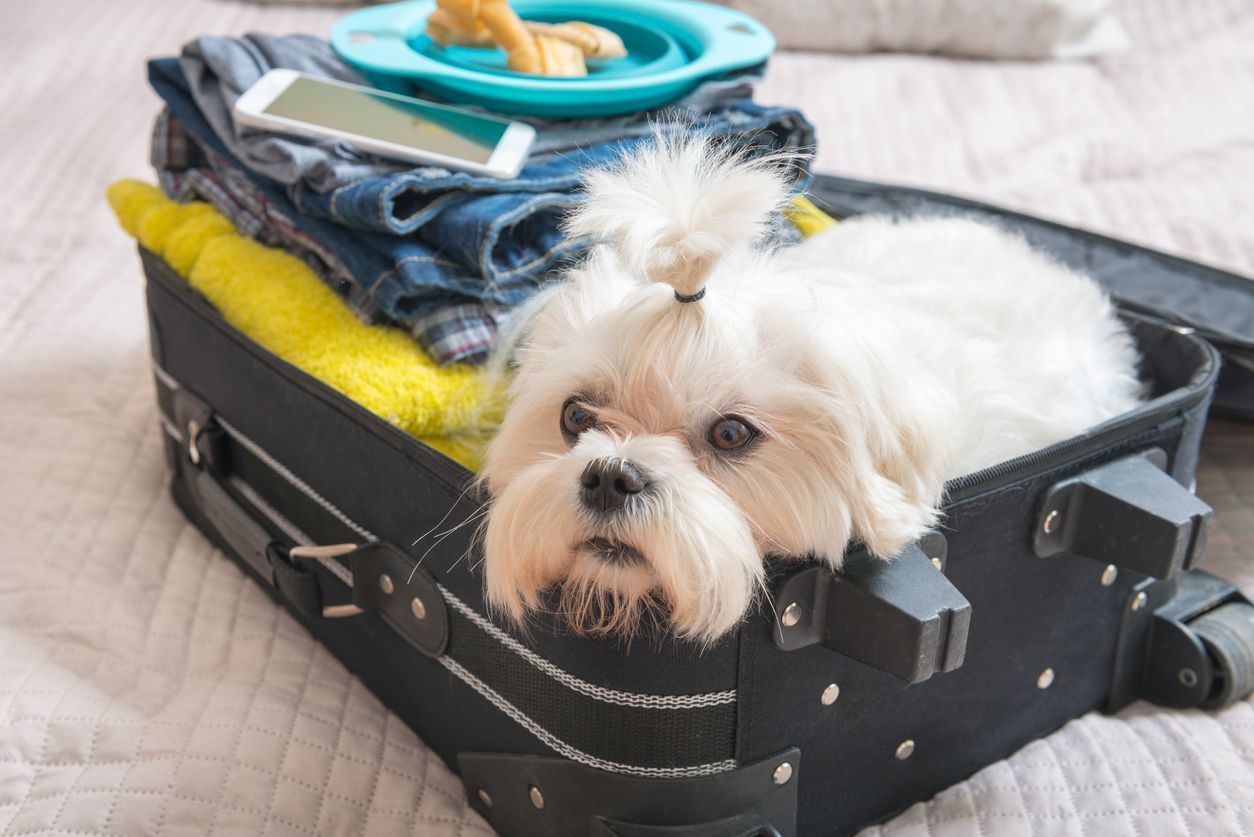What to know about rentals & vacations with your pet

Do you and your pet hate to spend time apart? It may help to know being away is probably harder on you than it is your pet . It’s tough to leave your pet behind — you miss the company and the constant companionship. Luckily it’s pretty easy to grab your furry friend and take them on your vacation. But if you’re not camping, using an RV, or staying with someone you know, lodging can be a bit confusing thanks to all the different pet policies. Here’s what you need to know.
Make Sure Your Pet is Welcome
Pretty much every vacation rental has a pet policy that outlines whether pets are allowed, what types, what sizes, and what you can do with them there. Your first step to finding the pet policy is to look on the website of wherever you’re going to stay. Whether you’re staying in a hotel or have booked a private rental, odds are good the management wants to make that information easy for you to find. If a pet policy isn’t listed, give them a call and ask. Keep in mind that you might run into pet restrictions, including:
• Size
• Breed
• Species
• Number of pets
You May Have to Pay a Fee
Fido and Fluffy generally won’t be able to stay at your lodging free-of-charge (though the Red Roof Inn hotel chain allows pets to stay for free). Most hotels charge a fee per pet, which can be as low as $25 up to $200 or more. This allows the staff to take extra care when cleaning the room, and at some hotels, helps provide special amenities for your pets. The Sofitel in Chicago, for example, has pet beds and bowls that are put in the room for every stay, and you can order room service for your pet as well. Cottages, cabins, campsites, and other independent lodging may have individual pet fees and cleaning fees afterward, so be sure to check before your arrival.
Communicate With Your Hosts
You don’t want to show up to a rental with your pet when the staff isn’t expecting you to have one. Note in your reservation that your fuzzy bestie is joining you in your stay. You can do that with a phone call, an email, a text, or through the notes on your booking when you reserve your spot. You should also ask for an emergency number for the staff in case there’s a problem and you need to get in touch with someone.
Don’t Forget a Crate
Many pet policies require you to bring a crate for your pet if you’re going to leave them in your room alone. It’s good advice — you don’t want them to tear up carpet or chew a chair leg when you’re not around to stop them. But if Fido or Fluffy aren’t crate or carrier trained, a hotel with this type of policy might not be the best spot for you to stay. Putting your pet in a confined space when they’re not ready for it can make them pretty anxious.
You Might Not Be Allowed to Leave Your Pet Alone
Some pet policies don’t allow you to leave your pet unattended in the room. In these cases, the upside is you might not need to bring a crate to a facility with this type of policy. The downside is that you’ll need to find a pet sitter to come watch them if you plan to go anywhere. Many hotels and vacation rental companies partner with pet sitting services for this very reason. When you arrive, ask if they have any recommendations. Some may even arrange pet sitting services for you if you give them enough notice.
Think About the Other Guests Around You
Is your dog a frequent barker? Consider that before opting to stay somewhere like a hotel or motel with close neighbors. Every time your dog barks, the people staying around you will hear it — and their vacation shouldn’t have to suffer because Fido saw a bird fly past the window. It’s probably best to stay in a detached spot, like a cabin or guesthouse, if your dog wants you to know about everything going on in their day. Similarly, be considerate of other guests when walking your dog on the premises and - as always - be sure to clean up after your pets.
Research Pet Clinics Beforehand
Don’t stay somewhere until you have figured out where the nearest veterinarians and pet clinics are to your lodging. Accidents can happen anywhere, and you don’t want to be in a situation where your pet is injured and you have no idea what to do or where to go. This is especially important if you’re staying somewhere off-the-grid. Put all the information you collect about local services down (including addresses, phone numbers, and directions) and bring it with you on your trip. If you’re in a place with reliable internet, remember that a Vetster vet will always be just a video call away.
Cleaning is Extra Important
Sure, wherever you stay probably has a cleaning crew to come in after you leave. But pets — especially ones that shed — can leave some pretty unique messes. Some AirBNBs will note in the room rules that if they have to do extra cleaning to remove fur or other pet messes, you’ll be charged an extra fee. Keep your hosts (and your own bank account) in mind, and clean up before you leave.










